Reuters

A growing number of countries around the world are evacuating or planning to evacuate diplomatic staff and citizens from parts of China hit by the new coronavirus.
Following are some countries’ evacuation plans, and how they aim to manage the health risk from those who are returning.
- Kazakhstan, which has previously evacuated 83 from Wuhan, will send two planes to China on Feb. 10 and Feb. 12 to evacuate its citizens. Out of 719 Kazakhs remaining in China, 391 have asked to be repatriated.
- A second evacuation flight is bringing back another 174 Singaporeans and their family members from Wuhan to the city-state on Feb. 9, Singapore’s foreign ministry said.
- Thirty Filipinos returned to the Philippines on Feb. 9 from Wuhan, the Department of Foreign Affairs said. The returning passengers and a 10-member government team will be quarantined for 14 days.
- Britain’s final evacuation flight from Wuhan, carrying more than 200 people, landed at a Royal Air Force base in central England on Feb. 9. A plane carrying 83 British and 27 European Union nationals from Wuhan landed in Britain last week.
- The 34 Brazilians evacuated from Wuhan landed in Brazil on Feb. 9, where they will begin 18 days of quarantine.
- Two planes with about 300 passengers, mostly U.S. citizens, took off from Wuhan on Feb. 6 bound for the United States -- the third group of evacuees from the heart of the coronavirus outbreak, the U.S. State Department said.
- Uzbekistan has evacuated 251 people from China and quarantined them on arrival in Tashkent, the Central Asian nation’s state airline said on Feb. 6.
- A plane load of New Zealanders, Australians and Pacific Islanders evacuated from Wuhan arrived in Auckland, New Zealand on Feb. 5, officials said.
- Taiwan has evacuated the first batch of an estimated 500 Taiwanese stranded in Wuhan.
- Italy flew back 56 nationals from Wuhan to Rome on Feb. 3. The group will spend two weeks in quarantine in a military hospital, the government said.
- Saudi Arabia has evacuated 10 students from Wuhan, Saudi state television reported on Feb. 2.
- Indonesia’s government flew 243 Indonesians from Hubei on Feb. 2 and placed them under quarantine at a military base on an island northwest of Borneo.
- South Korea flew 368 people home on a charter flight that arrived on Jan. 31. A second chartered flight departed Seoul for Wuhan on Jan. 31, with plans to evacuate around 350 more South Korean citizens.
- Japan chartered a third flight to repatriate Japanese people, which arrived from Wuhan on Jan. 31, bringing the number of repatriated nationals to 565.
- Spain’s government is working with China and the European Union to repatriate its nationals.
- Canada evacuated its first group of 176 citizens from Wuhan to an Ontario air force base early on Feb. 5, according to the Globe and Mail newspaper. The country’s foreign minister said a second group should arrive later on Feb. 5 after changing planes in Vancouver. All evacuees will be quarantined on the base for two weeks.
- Russia said it would begin moving its citizens out of China via its Far Eastern region on Feb. 1, regional authorities said. It plans to evacuate more than 600 Russian citizens currently in Hubei, Deputy Prime Minister Tatiana Golikova said. A first Russian military plane took off on Feb. 4 to evacuate Russian citizens from Wuhan, the RIA news agency reported.
- The Netherlands is preparing the voluntary evacuation of 20 Dutch nationals and their families from Hubei, Foreign Minister Stef Blok said. The Netherlands is finalising arrangements with EU partners and Chinese authorities.
- France has evacuated some nationals from Wuhan and said it would place the passengers in quarantine. It said it would first evacuate nationals without symptoms and then those showing symptoms at a later, unspecified date.
- Swiss authorities said they hope to have about 10 citizens join the French evacuation of nationals from China.
- A plane brought 138 Thai nationals home from Wuhan last week. They will spend two weeks in quarantine.
- Kazakhstan, which has previously evacuated 83 from Wuhan, will send two planes to China on Feb. 10 and Feb. 12 to evacuate its citizens. Out of 719 Kazakhs remaining in China, 391 have asked to be repatriated.
- A second evacuation flight is bringing back another 174 Singaporeans and their family members from Wuhan to the city-state on Feb. 9, Singapore’s foreign ministry said.
- Thirty Filipinos returned to the Philippines on Feb. 9 from Wuhan, the Department of Foreign Affairs said. The returning passengers and a 10-member government team will be quarantined for 14 days.
- Britain’s final evacuation flight from Wuhan, carrying more than 200 people, landed at a Royal Air Force base in central England on Feb. 9. A plane carrying 83 British and 27 European Union nationals from Wuhan landed in Britain last week.
- The 34 Brazilians evacuated from Wuhan landed in Brazil on Feb. 9, where they will begin 18 days of quarantine.
- Two planes with about 300 passengers, mostly U.S. citizens, took off from Wuhan on Feb. 6 bound for the United States -- the third group of evacuees from the heart of the coronavirus outbreak, the U.S. State Department said.
- Uzbekistan has evacuated 251 people from China and quarantined them on arrival in Tashkent, the Central Asian nation’s state airline said on Feb. 6.
- A plane load of New Zealanders, Australians and Pacific Islanders evacuated from Wuhan arrived in Auckland, New Zealand on Feb. 5, officials said.
- Taiwan has evacuated the first batch of an estimated 500 Taiwanese stranded in Wuhan.
- Italy flew back 56 nationals from Wuhan to Rome on Feb. 3. The group will spend two weeks in quarantine in a military hospital, the government said.
- Saudi Arabia has evacuated 10 students from Wuhan, Saudi state television reported on Feb. 2.
- Indonesia’s government flew 243 Indonesians from Hubei on Feb. 2 and placed them under quarantine at a military base on an island northwest of Borneo.
- South Korea flew 368 people home on a charter flight that arrived on Jan. 31. A second chartered flight departed Seoul for Wuhan on Jan. 31, with plans to evacuate around 350 more South Korean citizens.
- Japan chartered a third flight to repatriate Japanese people, which arrived from Wuhan on Jan. 31, bringing the number of repatriated nationals to 565.
- Spain’s government is working with China and the European Union to repatriate its nationals.
- Canada evacuated its first group of 176 citizens from Wuhan to an Ontario air force base early on Feb. 5, according to the Globe and Mail newspaper. The country’s foreign minister said a second group should arrive later on Feb. 5 after changing planes in Vancouver. All evacuees will be quarantined on the base for two weeks.
- Russia said it would begin moving its citizens out of China via its Far Eastern region on Feb. 1, regional authorities said. It plans to evacuate more than 600 Russian citizens currently in Hubei, Deputy Prime Minister Tatiana Golikova said. A first Russian military plane took off on Feb. 4 to evacuate Russian citizens from Wuhan, the RIA news agency reported.
- The Netherlands is preparing the voluntary evacuation of 20 Dutch nationals and their families from Hubei, Foreign Minister Stef Blok said. The Netherlands is finalising arrangements with EU partners and Chinese authorities.
- France has evacuated some nationals from Wuhan and said it would place the passengers in quarantine. It said it would first evacuate nationals without symptoms and then those showing symptoms at a later, unspecified date.
- Swiss authorities said they hope to have about 10 citizens join the French evacuation of nationals from China.
- A plane brought 138 Thai nationals home from Wuhan last week. They will spend two weeks in quarantine.
















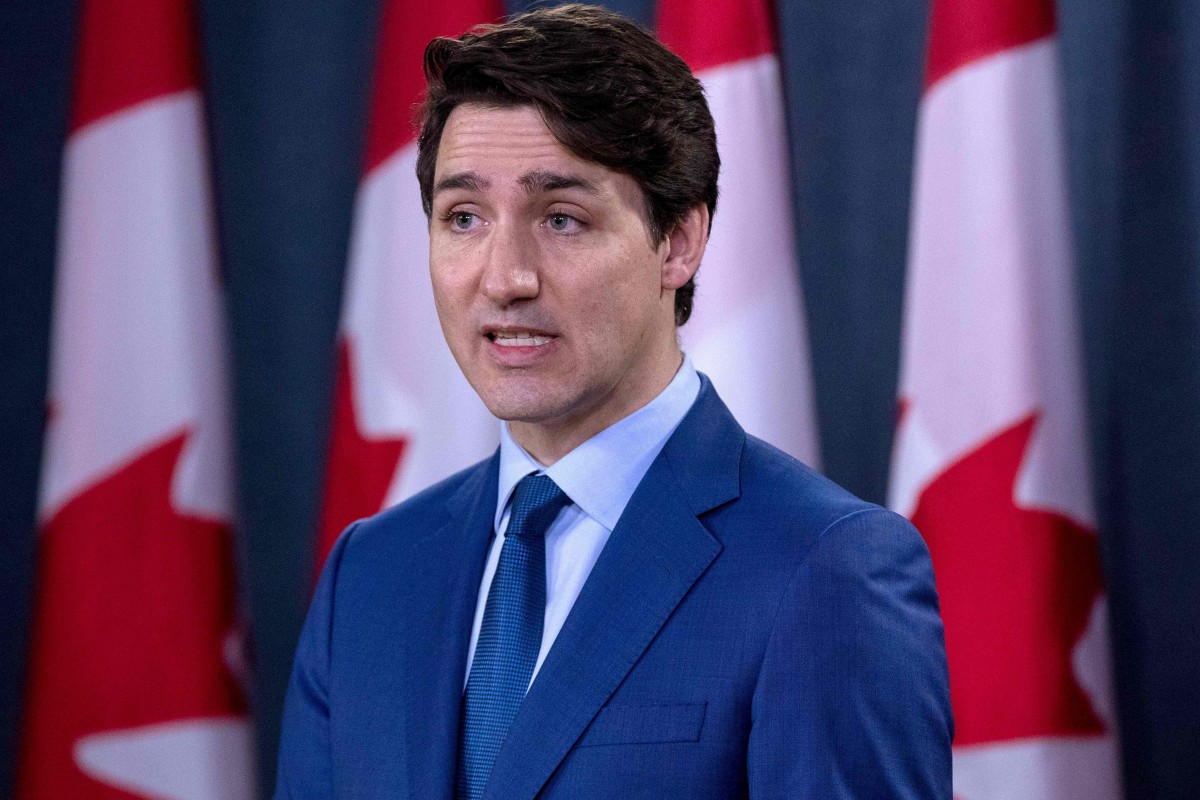











 Police officers stand guard outside the Canadian embassy in Beijing on January 27, 2019.
Police officers stand guard outside the Canadian embassy in Beijing on January 27, 2019.
 Who sues Canada? Meng Wanzhou, for one.
Who sues Canada? Meng Wanzhou, for one.

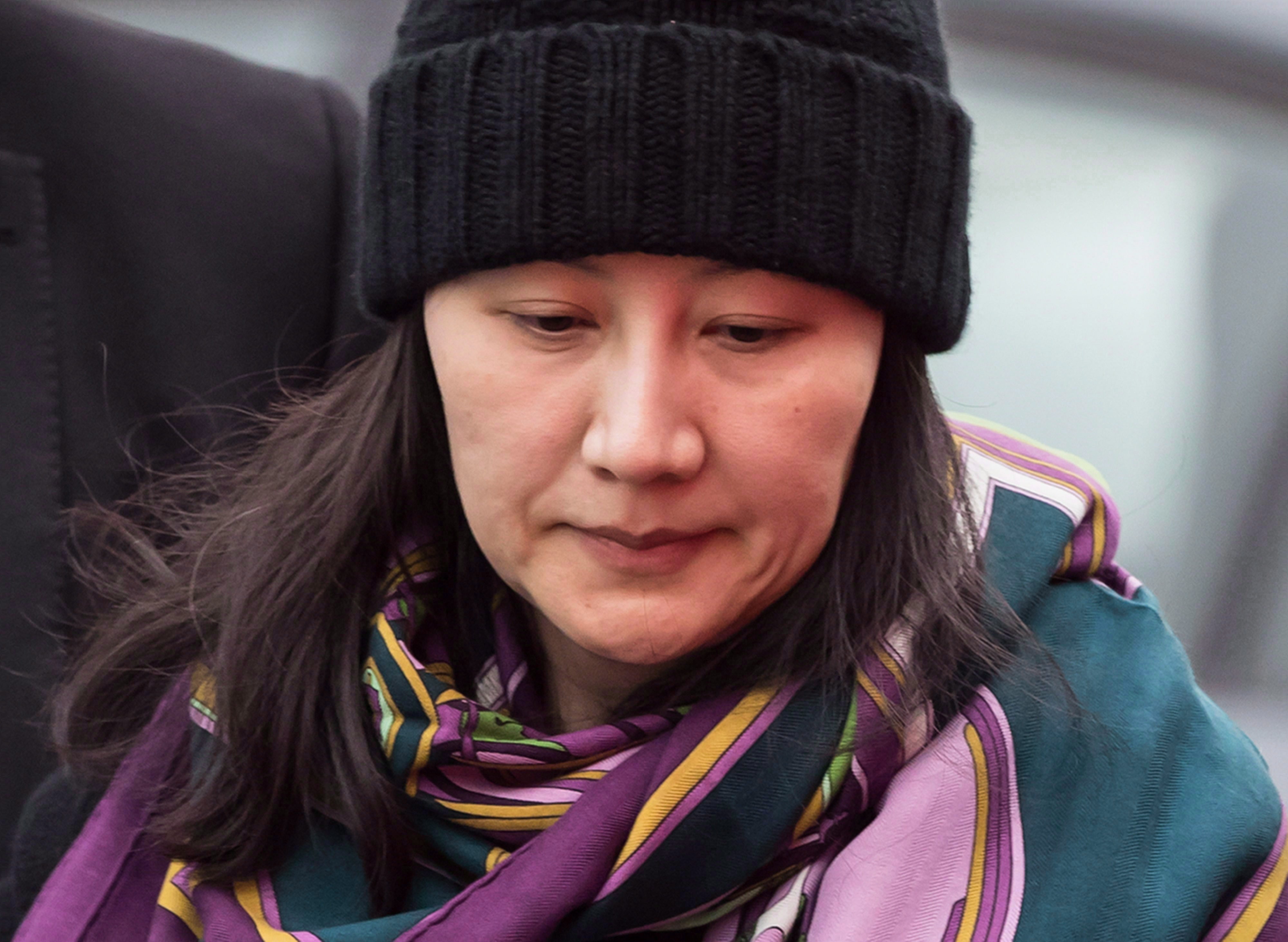

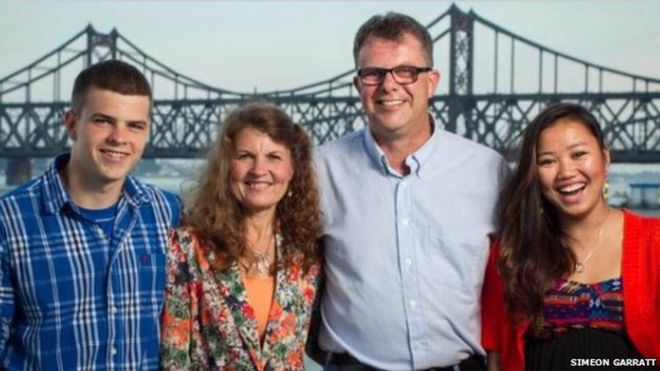
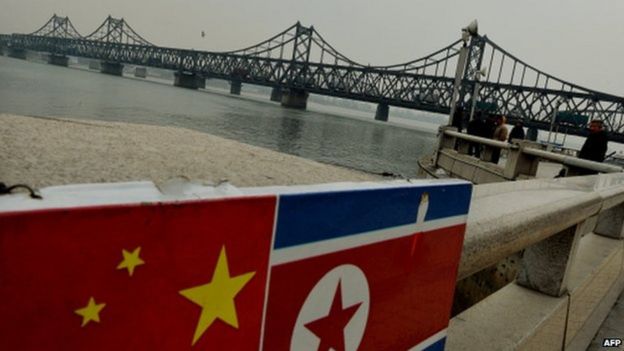
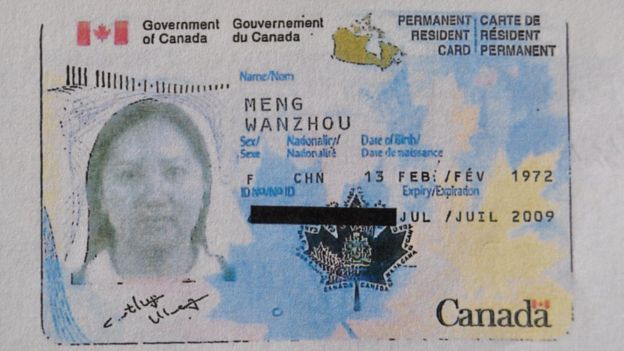
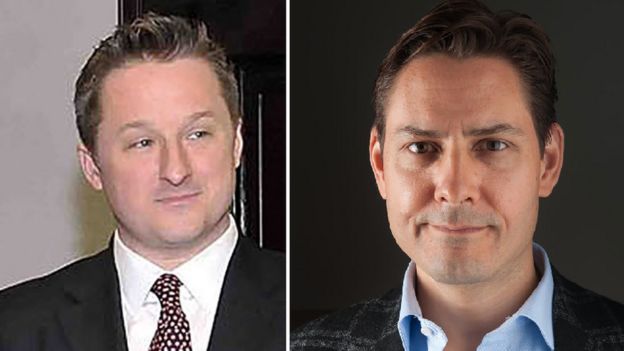 Michael Spavor (L) and Michael Kovrig have been put under "compulsory measures"
Michael Spavor (L) and Michael Kovrig have been put under "compulsory measures" Kevin Garratt is reunited with his wife Julia in Vancouver
Kevin Garratt is reunited with his wife Julia in Vancouver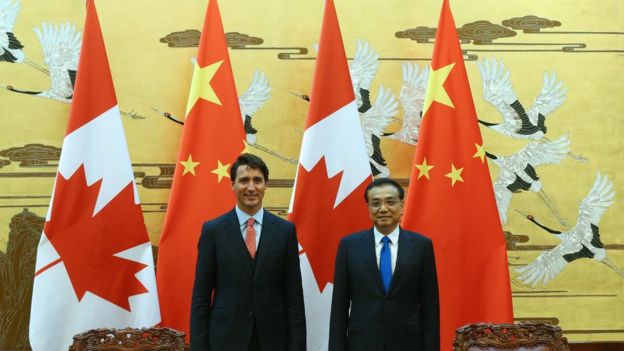 Justin Trudeau raised the Garratt case with Chinese officials in August 2016
Justin Trudeau raised the Garratt case with Chinese officials in August 2016



